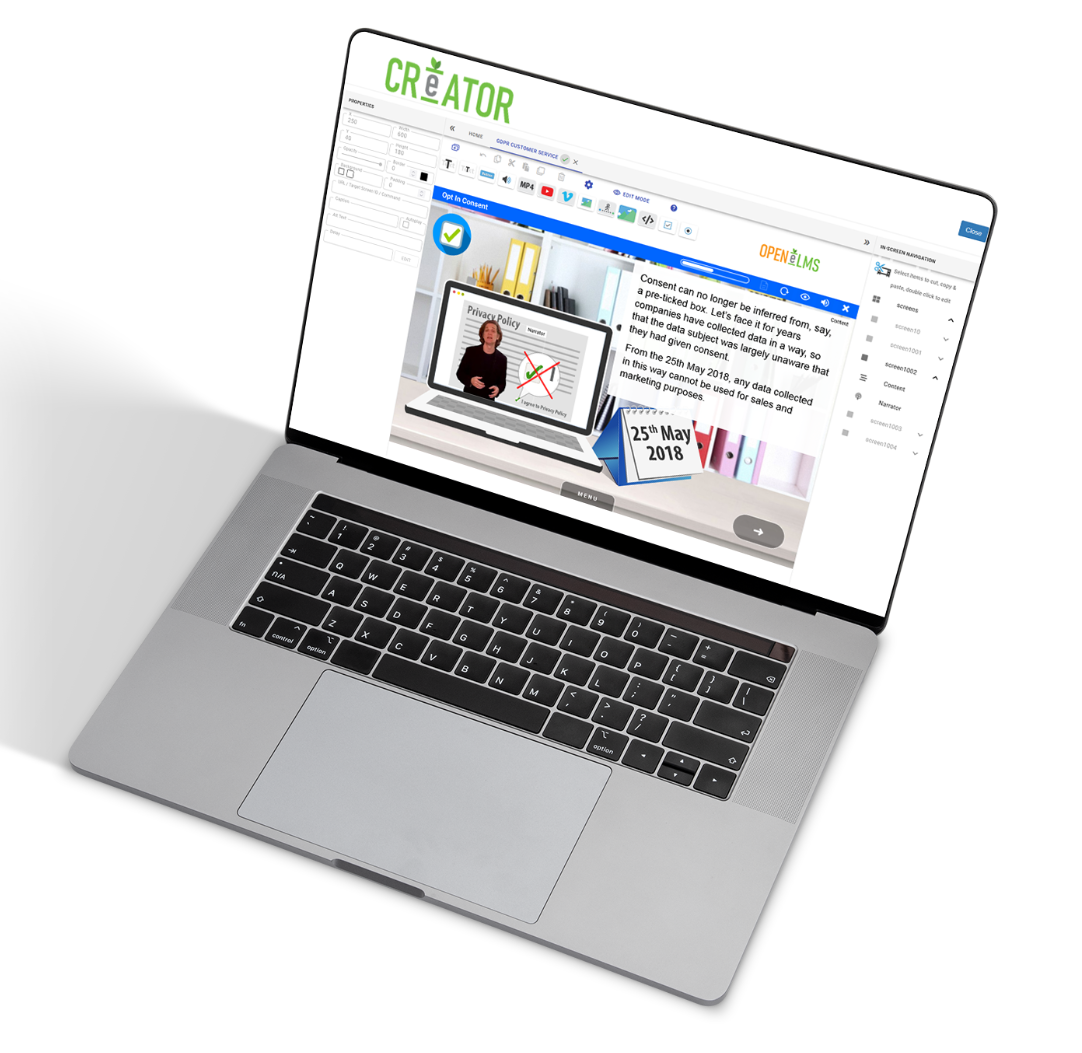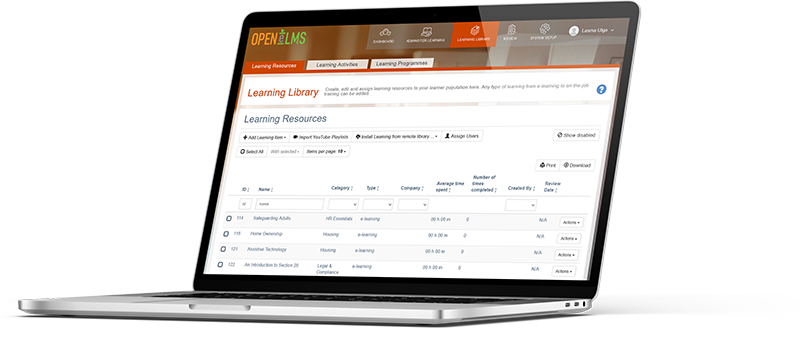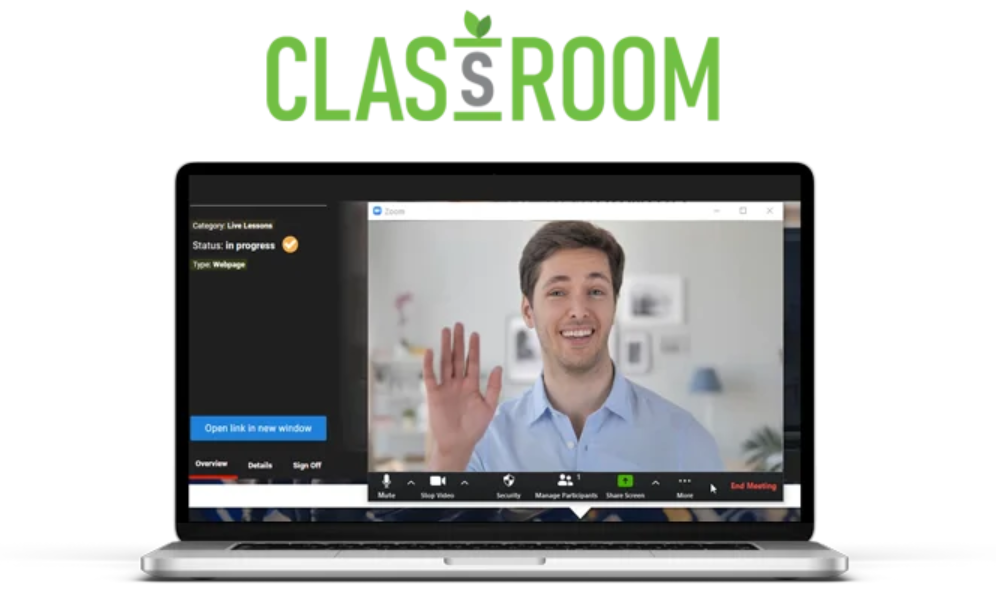

The integration of technology into learning processes is not just a luxury—it’s a necessity. The days of traditional, one-size-fits-all teaching methods are fading, replaced by dynamic, personalised learning experiences. At the heart of this transformation lies the Learning Management System (LMS), a vital tool that provides a comprehensive platform to deliver, track, and manage educational content. Selecting the right LMS is crucial for meeting the diverse needs of both learners and educators. This guide outlines the essential features to prioritise when choosing a modern LMS to ensure it fosters an engaging, effective, and efficient learning environment.
Key Takeaways
- Adaptive Learning Pathways: Create personalised learning experiences tailored to individual learner’s strengths and areas for improvement.
- AI-Powered Recommendations: Utilise artificial intelligence to suggest relevant content, keeping learners engaged and continuously progressing.
- eLearning Content Generation: Transform text and documents into interactive, multimedia-rich eLearning modules quickly and efficiently.
- Skills Analysis and Tracking: Track and analyse user skills to make informed training decisions and address competency gaps.
- Custom Forms for Personnel Management: Streamline administrative processes with customisable forms for managing performance and HR data.
- Comprehensive eLearning Library: Access a wide range of topics and skills with a consistently designed, customisable eLearning library.
- Smart Classrooms: Enhance learning by integrating online sessions with face-to-face interactions, supported by comprehensive booking and collaboration tools.
- Surveys and Quizzes: Use regular assessments to provide immediate feedback, ensuring alignment with educational goals and adapting learning pathways as needed.
Adaptive Learning Pathways
A key feature of a modern LMS is the ability to create personalised learning pathways. These pathways adapt to the unique characteristics and needs of each learner. By leveraging data on learner performance, preferences, and progress, the LMS can tailor the learning experience, offering content and activities that align with individual strengths and areas for improvement. This adaptive approach ensures learners receive the most relevant and effective instruction, enhancing engagement and outcomes.
AI-Powered Recommendations
Modern LMS platforms harness the power of artificial intelligence to offer personalised learning recommendations. By analysing learning patterns and characteristics, the system suggests additional content and resources that have benefited other learners with similar profiles. This AI-driven personalisation not only enriches the learning experience but also encourages continuous engagement by presenting learners with new and relevant material tailored to their needs.

eLearning Content Generation
Producing high-quality eLearning content from text or documents is a significant advantage. For instance, Open eLMS AI features a unique text-to-learning generation tool that utilises multi-modal professional standard AI to transform written content into engaging eLearning modules. This capability allows educators to quickly and efficiently create interactive and multimedia-rich learning materials, ensuring content delivery is both effective and appealing to learners.
Skills Analysis and Tracking
A robust LMS should include a comprehensive skills analysis feature. This tool tracks the underlying skills of each user, creating a detailed matrix of employee competencies across the organisation. Such analysis is invaluable for making informed decisions about training needs and assignment suitability. By identifying skill gaps and strengths, organisations can tailor their training programmes to address specific needs, ensuring all employees have the necessary skills to perform effectively.
Custom Forms for Personnel Management
Customisable forms are essential for effective personnel management within an LMS. These forms can be used to gather and manage data on employee performance, training needs, and other HR-related information. The ability to create and use bespoke forms allows organisations to streamline their administrative processes and maintain accurate records, enhancing overall efficiency and compliance. Moreover, integrating an online assessment platform (e.g. Assess) can complement these custom forms by providing comprehensive tools for evaluating employee performance and training outcomes. This integration ensures a more holistic approach to personnel management and development.

Comprehensive eLearning Library
A modern LMS should offer an extensive eLearning library covering a wide range of topics and skills. The content should have a consistent look and feel, which aids in customisation and ensures a smooth navigation experience for learners. The ability to customise eLearning content is crucial, allowing organisations to tailor the material to their specific needs and branding requirements.

Smart Classrooms
Integrating smart classrooms into an LMS can significantly enhance the learning experience by blending online learning with face-to-face or webinar sessions. A full booking system, complete with a payments engine if required, is essential for managing these sessions efficiently. Additional features such as lesson recording, chat rooms, collaborative whiteboards, and message boards facilitate social learning and provide opportunities for learners to interact and collaborate, mirroring the benefits of traditional classroom environments.
Surveys and Quizzes
To assess understanding and ensure learning objectives are met, surveys and quizzes are indispensable tools. They provide immediate feedback to learners and educators, highlighting areas of success and those needing further attention. Regular assessments help maintain alignment with educational goals and allow for adjustments to the learning pathway as needed.
Conclusion
Choosing the right LMS is critical for maximising the potential of educational and training programmes. By focusing on features such as adaptive learning pathways, AI-powered recommendations, eLearning content generation, skills analysis, custom forms, a comprehensive eLearning library, smart classrooms, and robust assessment tools, organisations can ensure they provide a dynamic and effective learning environment. Open eLMS exemplifies these capabilities, offering a cutting-edge solution that meets the diverse needs of modern learners and educators. For a detailed functional specification of Open eLMS, you can review the document here or access the LMS immediately by registering—your branded site will be set up in seconds.
Embracing these features will not only enhance the learning experience but also drive better educational outcomes and foster a culture of continuous improvement and development.
